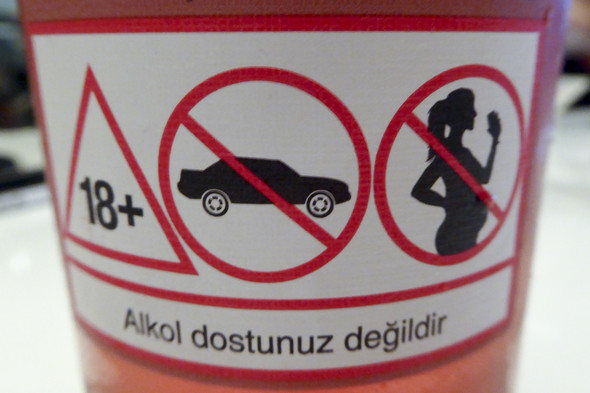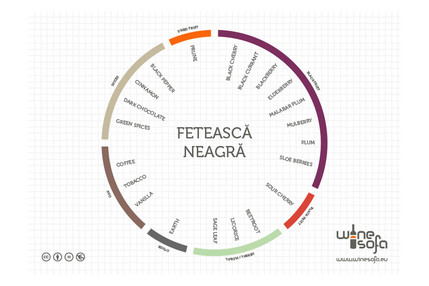You’d be forgiven for not placing Turkey high up on your list of great wine countries. A Muslim country, whose hard-won secular traditions are now being eroded after a decade under its current Islam-rooted government, with its punitive stance on alcohol and onerous tax burdens. Even drinking a glass of wine in public can be construed as having political significance. In 2013, the ruling hard-line Justice and Development Party (AKP) imposed strict curbs on the sale and promotion of wine, which forbid tastings, promotional information and website visuals. Advertising any kind of promotional event is forbidden. New bars cannot be opened near mosques. Wineries are incurring large costs to change their publicity materials and to add the warning that ‘alcohol is not your friend’ to their labels. Young wineries are particularly badly hit as they are effectively unable to promote their wines. However many are constructing boutique hotels, which they can then market instead of the wines of themselves.
You would probably be surprised to learn that Turkey has some of the world’ most extensive vineyards in the world, the fifth biggest vineyard area in fact, but less than 5% of this is given over to wine production. Most of the grapes are sold as fruit, fresh or dried or turned into Raki, the local aniseed-flavoured firewater. Turkey is home to about 600-1200 indigenous varieties of vitis vinifera, however only a very small number of these are grown commercially, such as Öküzgözü (Turkey’s most widely planted black variety, producing medium-bodied, fruity wines), Boǧazkere (producing tannic wines with good ageing potential), Kalecik Karasi (producing fruit forward reds - literally translated, ’Bull’s Eye’) and Narince (a crisp,mineral fruity white variety).
Some potted history
The area which Turkey, Georgia and Armenia occupy today is believed to have played a key role in the history of wine and was most likely one of the first regions to produce wine, with traces of viticulture dating back 7000 years. However, it has had a chequered history and complex relationship with alcohol. Ancient civilisations, such as the Hittites, Assyrians and Thracians were all involved in wine-making. Indeed the Thracians were famous for their drinking habits. Greeks, Phoenicians and Byzantines all continued these vinous traditions.
Things got more complicated when the Turks settled in Anatolia in the 11th century, freshly converted to Islam, whose ban on alcohol conflicted with the Turks’ old customs of drinking. Although under the Ottoman Empire, there was a general atmosphere of tolerance; non-Muslims could produce alcohol and both Christians and Muslims could consume it. Nevertheless, prohibitions interrupted this time and time again; breaking the newly introduced rules could even result in the death penalty! However, its consumption was generally tolerated for economic reasons as it was an important source of tax income.
Phylloxera’s destruction of the vineyards in Europe resulted in an increased demand for wine from the Ottoman Empire and by 1904 its wine exports had reached 340 million litres.
With the forced emigration of the Greeks and Armenians after World War I, viniculture was largely abandoned until Atatürk, founder of Turkey’s modern secular republic, attempted to persuade his people of the benefits of wine and to ensure the survival of its indigenous varieties, by building state wineries in the 1920s aided by foreign consultants.
Turkey is predominantly Muslim with its alcohol consumption per capita reflecting this at one litre per person per annum. Therefore, the domestic market is somewhat limited, but from the 1980s the growth of tourism and the privatisation of the state monopoly Tekel (now branded as Kayra) boosted the fortunes and quality of Turkish wine, with many wineries investing in modern developments
A new chapter began in the 1990s with early boutique wineries, such as Sarafin and Gülor, being established in Southern Thrace, focusing on international varieties and varietal wines. However, attempts to market Turkish wine have demonstrated the need to focus on indigenous varieties and local styles rather than to attempt to capture markets already awash with international varieties.
Younger, more cosmopolitan Turks are increasingly interested in wine; there has been a significant increase in quality and a growing interest in Turkey’s numerous indigenous varieties, with many new producers appearing on the scene in the early 21st century. However, the industry faces hurdles placed in its way by the government. Regulation is not there to aid producers, rather to control them, so progress is based on the efforts of individual producers. The country’s regions are not even officially designated and Wines of Turkey is a strategic partnership between some of Turkey’s leading wineries, rather than an initiative of the government.
Nevertheless, many young pioneering wineries are persevering in spite of the regime and investing heavily in modern technology, research into indigenous clones, consultancy from renowned ‘flying winemakers’ and the construction of boutique hotels and spas which will hopefully enable them to raise their profile. I wish them every luck in their endeavours.






